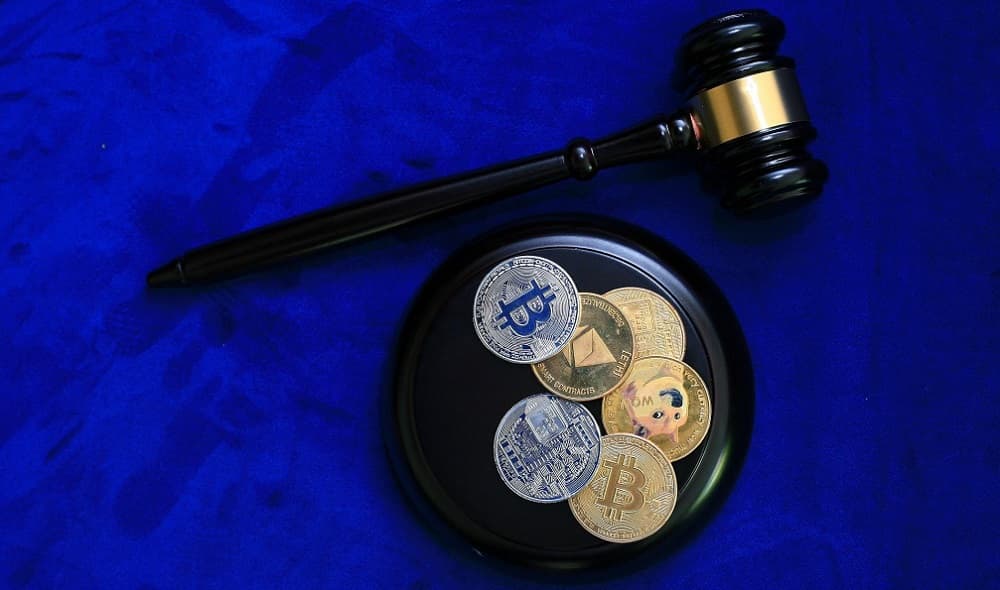
Legal side of Cryptocurrency: What to expect
To invest or not to invest? Perhaps the most significant question running in the mind of all beginner crypto investors. While the crypto industry has been at the peak of innovation with global acceptance, we cannot overlook the significant fraction of the population that remains skeptical about crypto. Lets’s find out the legal side of cryptocurrency.

Yes, we understand the confusion around investing in cryptocurrencies. Besides, why not? Following the explosive growth of cryptos and the interest that investors are taking, you’d want to be double sure of the legal implications before investing in cryptos. Especially now, as it is a very easy process – you can simply buy Bitcoin with credit card online.
With new steps being taken by regulatory bodies, central banks, and tax authorities around the legal standing of cryptocurrencies, it’s a wise move to understand the legal side of cryptos before investing in them. Keeping that in mind, this weblog aims at decluttering all the legal aspects associated with crypto that you need to know.
The basic functioning of Cryptocurrencies?
Crypto is a relatively new concept for the general populous accustomed to using conventional fiat currencies. The entire mechanism of cryptocurrencies lies on three primary foundations: blockchain, decentralization, and cryptography.
The Blockchain is a network or chain of blocks where each block holds information about crypto transactions. Crypto users themselves monitor the network, so there is no way one can tamper with the data stored on the network.
Unlike conventional fiat currencies, cryptos are not regulated by any centralized authority or regulatory body. This means external factors such as government policies have little to no influence on the currency’s value.
These three fundamentals work in sync to help you use your cryptos daily. These characteristics make crypto a favorable option for many individuals and business organizations alike.
Where does the legality come in?
Given the decentralized nature of cryptos, one might think centralized authorities have no control over cryptos. This is true to a great extent, but governments from around the globe are new and innovative legal measures to regulate cryptos. For instance, many governments are now taxing the returns you earn on your crypto investments as capital gains.
While such measures sound restricting but one cannot undermine their significance either. Crypto users are no strangers to crypto scams, where many have suffered great losses with no clue whatsoever. Given the rising number of such, it is not an entirely bad idea for the government to intervene to ensure your security.
Legal aspects of Cryptocurrencies
In most cases, crypto is independent of conventional legalities. However, particular areas can cause some legal issues for crypto users. Therefore, as a crypto user, you must acquaint yourself with these aspects that include:
- The Legal Framework: Regulating virtual currencies is never easy, and many countries are still working on a legal framework. Governments need to hasten their efforts to ensure they avail of the benefits of crypto while securing the interest of the country and its citizens. Of course, there are hurdles, but there are also ways to overcome them.
- Decentralization: As mentioned earlier, cryptos are decentralized, meaning no authority can regulate them. This keeps cryptos independent from all external factors of the market, making it a safer investment.
However, governments from around the globe are working towards making crypto safer with better regulations.
- Volatility: Cryptocurrencies are no strangers to high volatility. There is no effective and precise way to predict how given crypto will perform in the future.
While prominent cryptocurrencies are relatively safer but even their values can change significantly. This is because numerous factors can influence the value of your crypto.
- Taxation: The greatest tool that any government or authority has at its disposal is taxation. The anonymity assured by cryptocurrencies makes it much easier for fraudsters to facilitate tax evasion.
Such evasions ultimately hurt the country’s economy, resulting in further complications such as income equality. Nonetheless, governments are working hard to strengthen the taxation policies associated with cryptos.
- Independent Wallets: Every crypto user needs a digital wallet to hold on to their cryptos and store them. However, most of these wallets are under private ownership, which raises many vulnerable eyebrows.
So when you as an investor suffer any loss, the private companies are not answerable for your losses. As a result, authorities are working towards enhancing the accountability of such platforms to protect the interest of investors.
Legal side of Cryptocurrency: Final Thoughts
Perhaps it won’t be wrong to say that investors could still benefit from their investments, even after the legalities associated with cryptocurrencies. Interestingly, many authorities acknowledge this as they, too, understand and acknowledge the gravity of the situation. Consequently, making efforts to enhance crypto trading. Besides, general crypto users and engineers are also working hard to make crypto safer for everyone.
One such attempt can be seen in the rise of payment processing platforms like Coingate,, making it easier to make payments with crypto with the utmost safety.
However, no matter which stage of crypto investment you’re in, you can’t overlook the volatility aspect of the industry. Therefore, before investing in cryptos, always ensure that you’ve acquired sound industry knowledge. All the best!
You can also read these articles:
- How to find out a private number
- Folder Dimensions: File folder with measure
- 5 Best Apps for Foodies and Travelers Need


